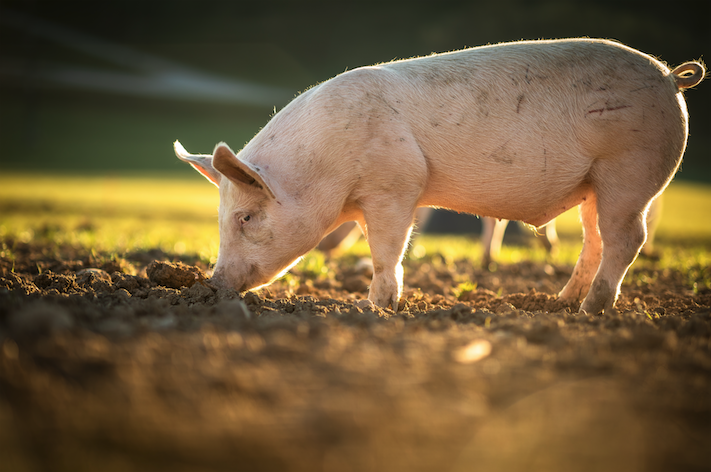Reposted from: https://kirkpatrickpolicygroup.substack.com/p/tell-congress-to-protect-small-hog
November 13, 2025
As a farmer, I’ve seen firsthand how livestock care practices have worsened over the years.
My wife and I own Staples Farm, a multi-generational family farm in central Oklahoma. We sell pasture-raised Berkshire pork that our customers love because it’s better for the animals and contains higher nutritional value than industrially raised pork.
Staples Farm is “Certified Animal Welfare Approved” by A Greener World (AGW), an international nonprofit that promotes practical, sustainable solutions in agriculture by supporting farmers and educating consumers.
A National Pork Council study to determine which breed produces the best pork ranked Berkshire pork first in nineteen out of twenty categories, including taste, marbling, moisture content, color, and tenderness. It’s also higher in Omega 3s, and being raised on pasture, it has increased antioxidants and more Vitamin D than industrial-raised pork.
Unlike our pigs, most Oklahoma hogs live in large industrial production facilities where pregnant sows are confined for life inside gestation crates scarcely larger than their bodies, preventing them from exhibiting natural behaviors such as turning around, lying down, and extending their limbs. They eat, drink, sleep, and relieve themselves inside these metal cages, with some gestation crates as small as six feet long by two feet wide.
Currently, eleven U.S. states have banned gestation crates. California and Massachusetts went a step further, banning the sale of pork products made using extreme confinement, even if the pigs were raised in other states. The Supreme Court of the United States upheld California’s Proposition 12.
The National Pork Producers Council (NPPC) is now asking Congress to overturn Prop 12 and other state-based animal welfare laws via a legislative “fix.” The NPPC represents the nation’s largest pork corporations, which includes Smithfield Foods (subsidiary of Chinese-owned WH Group), JBS (Brazilian-based multinational corporation), Tyson (American-based multinational corporation), and Hormel (also an American-based multinational corporation). According to the USDA, in 2024 these four companies controlled 67 percent of the U.S. pork market. Clearly, the NPPC doesn’t speak for family farms like ours.
I’m asking Oklahoma’s Congressional delegation to oppose the inclusion of the so-called Save Our Bacon Act (H.R. 4673) or any similar legislation in the next Farm Bill, and I encourage you to do the same. These policies would preempt state and local governments from making agricultural policies within their own borders that create market opportunities for small farms.
Oklahoma farmers and ranchers have a long tradition of caring for their animals and land. We have a responsibility to ensure our animals have adequate food and water, shelter that protects them from the elements, medical care when necessary, and the ability to live as naturally as possible.
Our farm operations are based on practical, high-welfare management methods emphasizing environmental stewardship. Our Berkshire pigs spend their lives outdoors, rotating through small, regenerative grazing enclosures called paddocks. Instead of crates, our sows give birth in mobile outdoor shelters known as pasture farrowing huts, allowing them to graze, move, and take breaks from their piglets.
Please join me in urging your Congressional representatives to oppose laws that endorse the use of gestation crates and other forms of extreme animal confinement. Together, we can promote responsible farming practices that benefit animals, people, and the environment.
Leo Staples is the owner/managing partner of Staples Farm in Harrah.
